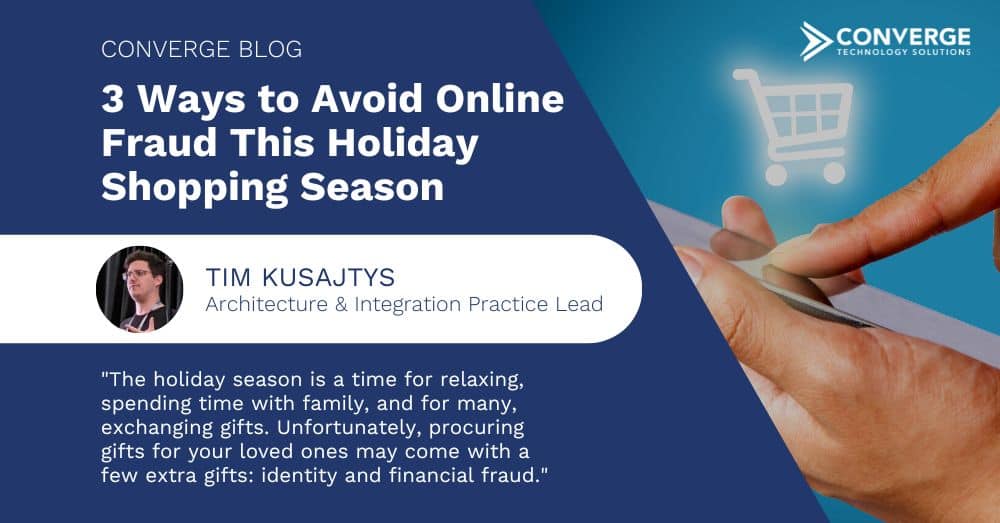The holiday season is a time for relaxing, spending time with family, and for many, exchanging gifts. Unfortunately, procuring gifts for your loved ones may come with a few extra gifts: identity and financial fraud.
Identify theft and financial fraud spike during the holiday season, mostly driven by the simple fact that with so many people in online shopping mode, there is more opportunity for these crimes to occur. With online sales this year topping Black Friday records, the issue is compounded.
No one wants to spend the holiday season on the phone with their bank’s fraud protection department. So, we’ve put together a list of some of the easiest ways to protect your identity this holiday season.
1. Shop from reputable sites
This is the easiest piece of advice to provide, and often the hardest to follow. With targeted ads on social media, it’s hard NOT to find something that would make a great present while scrolling through your feed, regardless of the platform. Scammers know this and take advantage by creating fake targeted listings that seem legitimate but are meant to collect your personal information and payment details.
If you wish to purchase something you see in an online ad, follow these simple guidelines:
- Go directly to the site yourself by typing the website address into the browser bar, instead of using the link from the ad. This prevents scammers from tricking you into using their fraudulent link.
- Look for reviews of the site. A simple Google search of (site name + fraud) will give you all the feedback you need to make a more informed decision.
2. Avoid using your debit or credit card online
You have finally decided to make a purchase. You’ve vetted the website and you feel comfortable giving the business your information. Does this mean you should pull your credit card out and punch it in willy-nilly? No!
Even reputable sites struggle to keep a handle on their information. Best Buy, Target, and even payment processors like Capital One and JP Morgan Chase have all suffered data breaches. The easiest way to prevent a retailer from having access to your payment information is by preventing them from having it in the first place.
Privacy.com is a service that allows you to make payments using on-the-fly-generated credit card numbers linked to your bank. These credit cards have an advantage over your normal credit card or debit card in a few ways.
First, they can be limited to the transaction or site you are purchasing from. If someone were to get ahold of that credit card information, they would not be able to use it on any other site.
Second, and more importantly, controls can be put in place around the amount per transaction or the total amount that can be spent using that card. Let’s say you place a cap on the amount you have already spent. Even if a fraudster figured out which sites you’ve approved for the Privacy.com credit card information, they still wouldn’t be able to use it.
Finally, a Privacy.com credit card number will validate against any billing information, meaning that you do not have to reveal your actual address to the site you are purchasing from.
3. Protect your address (and prevent surprises)
What is more important than your home—it is, after all, where the heart is! As well as everything you care about. You wouldn’t just tell some stranger on the street where you live, and yet, in order to receive packages, you have to provide information on where they should be sent. In lieu of giving away your homestead information, there are a few options:
- Ship to the store. Many major online retailers allow you to simply ship your products to one of their physical stores. This is one of the safest ways to prevent giving away your address and ensure the safe delivery of your product.
- Procure a PO box. If shipping to the store is not an option, for example, in scenarios where a retailer doesn’t have a brick-and-mortar location, a PO box is an inexpensive solution. Depending on your location, you can get a small PO box for anywhere from $12 to $15 a month. Most post offices will hold larger packages for you if they won’t fit inside the mailbox you select.
The reality of shopping online is that it is not a matter of if, but when your information will end up in the hands of identity thieves or financial fraudsters. By arming yourself with actionable information, you make yourself too difficult a target. These simple changes when making purchases will go a long way to keeping your holidays merry and bright.




